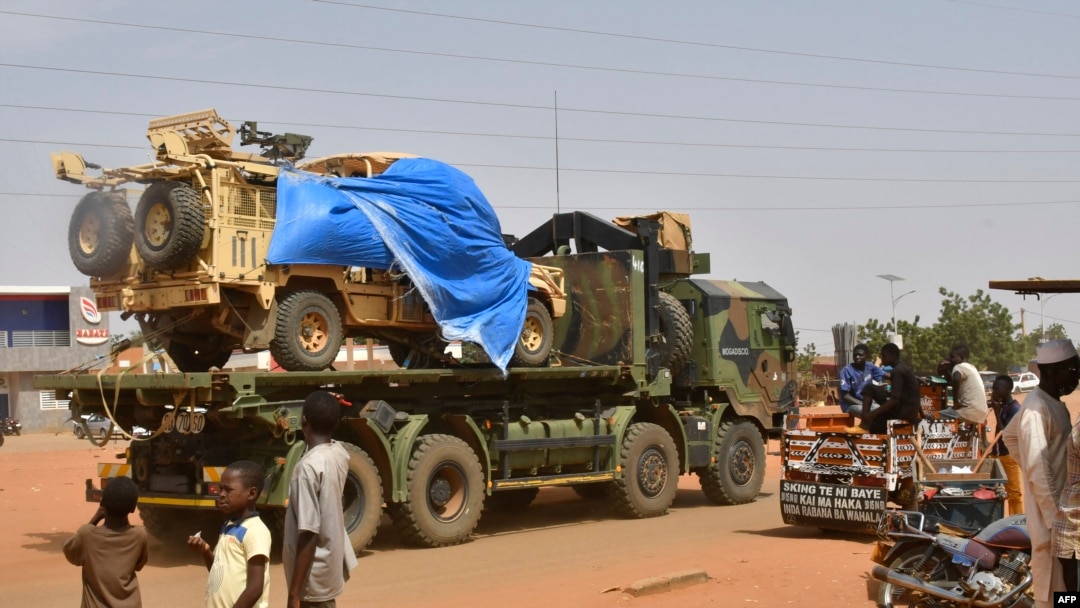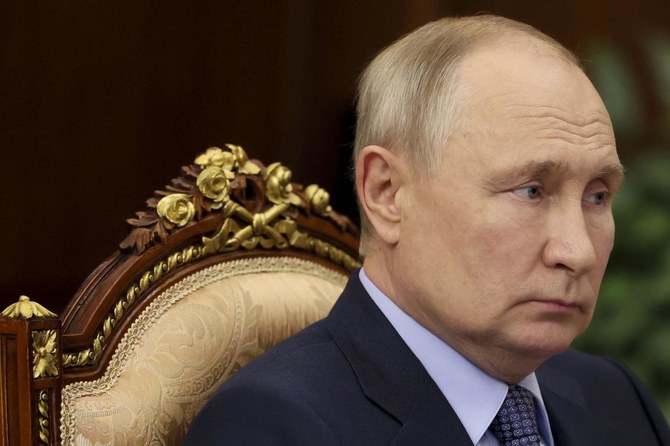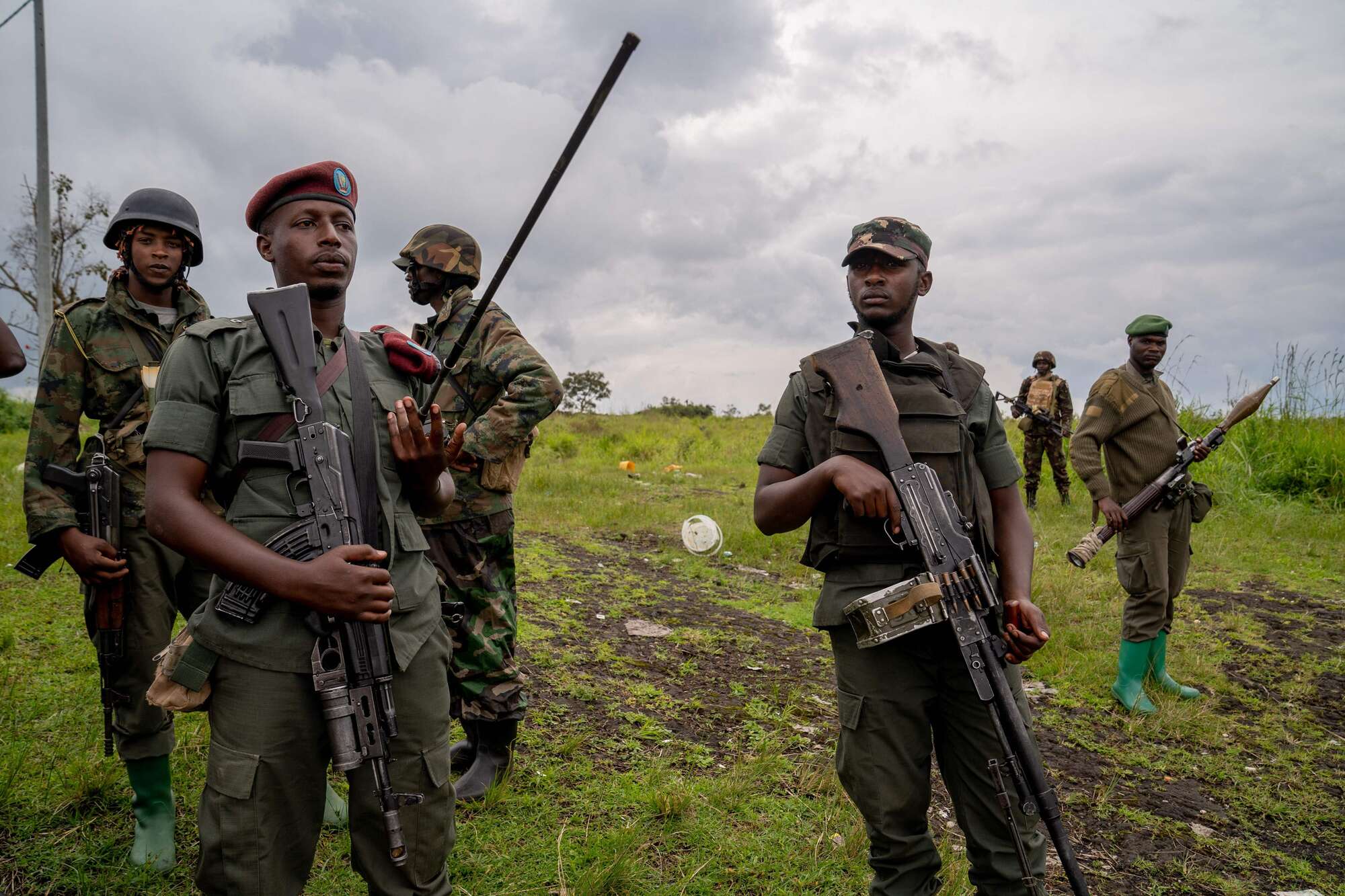Namirembe, Luweero dioceses crises deepen intrigue, fraud in bishop elections
The Anglican church in Uganda is facing a
stern test of integrity following the recent controversies arising from
two botched elections of bishops for the influential dioceses of
Namirembe and Luweero.
Controversial
elections of bishops are not new in the Anglican church but in this
case, especially that of Namirembe, the stakes are so high they
transcend pastoral leadership to include influences in key appointments
and finances. At the centre of the impasses are nomination committees,
elders, petitioners and an uncompromising House of Bishops, something
that has placed the church integrity at stake.
Typically, the election of a bishop is
considered a sacrosanct process. However, in the cases of Namirembe and
Luweero, it has transformed into an intense campaign, with supporters of
various candidates investing millions. On October 4, the House of
Bishops convened to decide between Canon Moses Banja and Canon Abraham
Muyinda to determine the successor to the retiring Wilberforce Kityo
Luwalira as the bishop of Namirembe diocese, with the consecration
planned for December.
Yet, the
House of Bishops chose to annul the nominations of both candidates. This
decision followed a last-minute petition by some prominent diocesan
elders, who pointed out significant flaws in the process led by the
nominations committee. Earlier, on June 25, the same House of Bishops,
through Canon William Ongeng, the provincial secretary of the Church of
Uganda, had nullified the election of Canon Godfrey Kasana as the bishop
elect of Luweero due to concerns about his integrity.
Adams Sadiki, the provincial
spokesperson for the Church of Uganda, stated that the House of Bishops
has formed a committee to probe the circumstances leading to these
issues. This committee will also provide guidance to the nominations
committee on how the new selection process should be conducted.
NAMIREMBE’S CROSS-ROADS
Tensions in Namirembe are palpably high,
with various influential figures from religious and business sectors
vying to have their chosen candidate succeed.
“Namirembe is more than just a diocese.
It stands as a colossal business empire, rivaling only the Kabaka of
Buganda in assets and influence. Hence, the intensity surrounding the
bishop’s position,” revealed a senior cathedral warden who wished to
remain unnamed.
Another
informant suggested that the influence over Namirembe extends from the
Buganda kingdom establishment, involving certain royals and venerable
families that have deep-rooted histories.
“The kingdom plays an indirect yet
significant role, with many pivotal decisions being made after
consulting with them. The kingdom has vested interests in the bishop’s
appointment,” he remarked.
While eleven candidates presented
themselves to succeed Luwalira, the primary contenders are Canon Moses
Kayimba, Canon Edward Stephen Kabanda, and Canon Banja. It’s evident
that the incoming bishop of Namirembe will wield significant power, not
just in spiritual realms but also in land management and overseeing
numerous diocesan initiatives.
Such intense races for the position
aren’t novel for Namirembe. However, an elder noted that this particular
race garnered public attention mainly due to the outgoing Bishop
Luwalira’s indecision on his successor.
“In the past, the incumbent bishop’s preference for his successor was evident, and alignments formed accordingly,” he commented.
Inside sources from the diocese
speculated that Luwalira initially leaned towards the young and rising
Kayimba, while others believed Kabanda was being prepped for the role.
Yet, by the time nominations came around, Banja seemed to have gained
Luwalira’s favor. However, Namirembe isn’t a typical diocese. With
parishioners already thinking post-Luwalira, his sway over the
nominations committee, appointed by the reigning bishop, appears to be
diminishing.
One notable point was the elders’
petition to the House of Bishops, which featured testimonies from seven
members. They challenged the way Fred Mpanga, the diocesan chancellor,
finalized the nominations for Banja and Muyinda. Attempts to contact
Mpanga, Banja, and Muyinda for comments were unsuccessful. With all the
undercurrents and displayed discord, it’s uncertain how the selection
will unfold, but it’s clear that the diocese is facing challenging times
ahead.
LUWEERO’S CONTEST
In April 2023, the House of Bishops
declared Canon Godfrey Kasana as the successor to the bishopric of the
Luweero diocese. Despite his triumph over eight competitors, the
election process was clouded with allegations of deception, bias, and
fraudulent practices. The nomination committee for the Luweero diocese,
headed by attorney Apollo Makubuya, thoroughly evaluated all candidates,
ultimately forwarding Canon Kasana and Rev. Abel Sserwanja Merewooma to
the House of Bishops for the final selection.
Notably missing from this shortlist was
Canon Geoffrey Muwanguzi, the provost of St. Mark Cathedral - the
principal church of the Luweero diocese. Muwanguzi was placed third in
the preliminary assessments. This set the stage for the unfolding
controversy. A subsequent petition by diocesan elders, fronted by
Kenneth Kikabi, revealed that Merewooma lacked two critical
qualifications for the bishop’s role. He neither met the age criteria of
45 years nor had the required decade-long priesthood experience, as
dictated by the Anglican Church canon laws.
Yet,
Merewooma maintained his eligibility, with insiders suggesting his close
affiliations with the upper echelons of Uganda’s Anglican church could
be influencing factors. The nomination committee’s attempts to
interrogate Kikabi hit a snag when he evaded personal appearances to
substantiate his claims.
Moreover, suspicions arose around the
veracity of Kikabi’s identity, leading some to believe it was a
pseudonym adopted by discontented petitioners. Nevertheless, due to the
undeniable evidence against Merewooma, the House of Bishops excluded him
from the final consideration.
This pivot paved the way for Kasana’s
unchallenged ascendancy. In a surprising move, Can Muyinda, initially
eliminated during the vetting stage, was reintroduced as a potential
candidate for the bishopric of Luweero. This twist intensified the
prevailing tensions. Ultimately, Kasana clinched the coveted position,
securing 25 of the 36 votes cast. Notably, Muyinda subsequently emerged
as one of the contenders for the recently contentious Namirembe diocese
bishop election.
DRAMA UNFOLDS: PART I
Shortly after the decision, Archbishop
Stephen Kaziimba presented Kasana with an official letter of
confirmation, marking his election as the fourth bishop of the Luweero
diocese. Following this, Kaziimba dispatched another letter to Kasana,
outlining preparations for his consecration set for July 9.
This communication, a copy of which The Observer
acquired, advised Kasana to engage in fundraising efforts among
Christians and patrons. It also highlighted the necessity for Kasana to
acquire his vestments and mace. However, this celebratory atmosphere was
disrupted when another petition spearheaded by Kikabi emerged,
challenging Kasana’s election.
The dispute centered around allegations
of an illicit affair with a woman named Milly Nakyomu, claiming that two
children, Kibaya and Gubi, were born from this liaison. In subsequent
communications on June 25, Kasana informed Kaziimba of having amassed
Shs 200m for the consecration, with Shs 50m already expended on the
robes and mace.
But just three days later, Canon Ongeng
made a public announcement on the Church of Uganda’s Family Television.
He declared that the House of Bishops, after convening at the Kabalega
resort hotel in Hoima, had decided to annul Kasana’s election due to
concerns regarding his integrity.
Ongeng’s statement read, “This
exceptional decision was reached after receiving credible evidence
suggesting that the bishop-elect’s integrity was misrepresented during
both the nomination and election processes, which rendered the election
null and void. The House of Bishops has mandated the diocesan
nominations committee to initiate fresh nominations within the next
month, concluding by July 31, 2023. The subsequent election will take
place on August 1, 2023, and the consecration and enthronement of the
new bishop will occur on August 6, 2023, at St Mark’s Cathedral,
Luweero.”
In the wake of this development, retired
Bishop James Ssebaggala was appointed as the interim bishop of Luweero,
representing the archbishop. Efforts to reach Archbishop Kaziimba
proved futile as he remained unresponsive to numerous call attempts. In
contrast, Adams Sadiki, the communications officer of the Archbishop’s
office, requested more time to provide a statement.
In the background, six bishops, who
wished to remain unnamed, expressed their concerns to our reporters.
They indicated that their apprehensions arose from printouts of messages
between Kasana and Nakyomu. These messages revealed consistent
communication and occasional monetary transfers even post-election. One
bishop from Kigezi remarked on the unusual nature of the evidence,
saying,
“We based our decisions on this circumstantial evidence, which we found perplexing.”
DRAMA UNFOLDS: PART II
Following the sudden reversal, Kasana
contested the decision. Given the delicate nature of the allegations,
both parties agreed that an external investigation was necessary to
validate the claims against him. Over three months, investigators
interviewed key figures including Kasana, Nakyomu, Kikabi, and Kaziimba.
The preliminary findings of the investigation, which The Observer
has reviewed, are shocking. Kasana’s defense hinged on a professional
relationship with Nakyomu. He shared that she worked as a matron and
bursar at his Sekamuli SS from 2016 to 2018. According to Kasana, he
began making installment payments to Nakyomu to settle outstanding
salary arrears upon her resignation in 2018. He vehemently denied any
romantic or personal relationship with her.
“He affirmed he was simply settling her dues and nothing more,” the draft report reveals.
When challenged to produce the alleged
children stemming from their supposed relationship, Kasana retorted that
the accusers should furnish evidence of their existence. The
investigative report indicates that during subsequent interviews with
both Kikabi and Kaziimba, neither could provide concrete evidence of the
existence of the children. However, Kaziimba told investigators the
decision to nullify Kasana’s election was rooted in concerns over
integrity.
BREAKDOWN IN COMMUNICATION
Sources informed The Observer
that in July, Kaziimba summoned Kasana and his wife for a meeting.
Kaziimba reportedly emphasized the need to uphold the church’s
integrity. He then proposed that Kasana take a three-month hiatus in the
USA to recuperate from the unfolding scandal.
This gesture was rebuffed by Kasana.
When pressed for concrete evidence supporting the allegations, Kaziimba
allegedly could only produce call records showing frequent communication
between Kasana and Nakyomu. The draft report reveals an oversight;
there was no internal disciplinary action or investigation undertaken
before the annulment of Kasana’s bishopric appointment.
Kaziimba’s subsequent establishment of a
diocesan disciplinary tribunal to examine the allegations was deemed
irrelevant by Kasana, but it has never summoned him. This perceived
injustice led Kasana to file two lawsuits in the High court: one
challenging his unfair dismissal and the other accusing Kaziimba of
defamation. The plaints suggest that despite the issuance of letters
validating his bishop-elect status, Kasana never received any formal
dismissal.
INTERTWINED STORIES
Investigations unearthed that incendiary
dossier, originating from a number associated with Kikabi, were first
circulated in the WhatsApp group of St Mark Cathedral. The group’s
administrator was Can Geoffrey Muwanguzi. When questioned, Muwanguzi
acknowledged his role but emphasized the platform’s neutrality. As
investigators delved deeper, it became apparent that ‘Kikabi’, the
supposed 20-year-old petitioner, might be a fictitious character. The
draft report posits, “Our probe suggests that ‘Kikabi’ is a facade
operated by Geoffrey Saku.”
TROUBLED WATERS
Sources reveal that the unfolding drama
has taken a toll on Bishop Ssebaggala, who has reportedly informed
Kaziimba of his intention to vacate his position due to growing unrest
in the diocese. Financial ramifications are already evident, with some
parishes reportedly withholding funds from the diocese. As tensions
rise, there are fears of violent confrontations.
“The sooner the House of Bishops
resolves this situation, the better. The current stalemate is fueling
hostility,” warned a cathedral warden.
On September 24, Ssebaggala was forced
to flee from angry Christians that accused him of conniving with
Kaziimba to frustrate Kasana. A source claimed that Ssebaggala gets a
weekly allowance of Shs 1m on top of a monthly salary of Shs 5m but in
the wake of the Kasana debacle, some parishes have since withheld
remitting finances to the diocese.
“This crisis is about to reach boiling point that will create bloodshed,” warned a warden at St Mark’s cathedral.
“The
earlier the House of Bishops sorts to confusion, the better, otherwise
the continued delay is only serving to fuel tension and bloodshed.”
UNCERTAINTY LOOMS
The Observer has acquired a
letter from Kaziimba directing a restart of the nomination process for
the next Luweero bishop. However, this move is seen by some as a ploy to
favor certain candidates, particularly Merewooma, who will soon meet
the canon law requirements on age and service.
A recent petition demands the suspension
of the current nomination process until Kasana receives an official
annulment letter. As the saga unfolds, it remains to be seen how
Archbishop Kaziimba will restore order to the beleaguered Luweero
diocese. One thing is clear: the unfolding drama threatens to plunge the
Anglican church into deeper turmoil.










